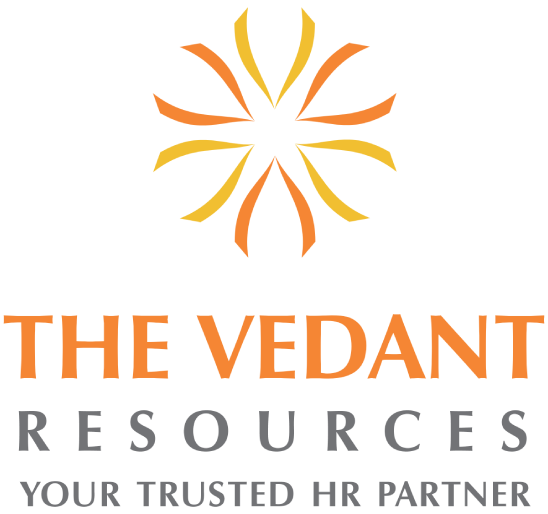
Introduction
In today’s rapidly evolving business landscape, small and medium enterprises (SMEs) form the backbone of the Indian economy. They contribute significantly to GDP, create employment opportunities, and drive innovation. Yet, one of the most pressing challenges SMEs face is attracting, nurturing, and retaining skilled talent. With 2025 already unfolding, effective talent development in India is no longer a luxury but a necessity for SMEs that want to thrive in a competitive marketplace.
This blog explores practical, forward-thinking approaches to employee training and development in 2025 tailored for Indian SMEs. Whether you’re a growing startup or a well-established SME, these strategies will help you align your workforce with business goals, ensure adaptability, and foster long-term growth.
Why Talent Development Matters for Indian SMEs
Unlike large corporations, SMEs often operate with limited resources and tighter budgets. This makes HR for SMEs particularly challenging, as they must maximize value from every rupee spent on training and development. However, ignoring talent development comes with higher risks high attrition rates, skill gaps, and reduced competitiveness.
Effective employee training and development 2025 ensures that:
- Employees are aligned with evolving market needs.
- Teams remain agile in adopting new technologies.
- Businesses build strong employer brands to attract top talent.
Retention rates improve, reducing hiring costs.
SMEs that prioritize structured learning and growth opportunities for employees are not only more resilient but also more innovative.
Key Trends in Talent Development India (2025)
To design impactful talent development programs, SMEs need to align with current trends shaping the Indian workplace.
With remote and hybrid work models becoming common, SMEs are increasingly adopting digital platforms for learning. Microlearning apps, virtual classrooms, and gamified training modules make learning accessible and engaging.
Artificial intelligence is revolutionizing HR for SMEs, offering data-driven insights into employee performance, training needs, and engagement. AI tools help personalize training paths and measure ROI effectively.
Beyond technical knowledge, employees need communication, collaboration, and problem-solving skills. In 2025, SMEs are integrating soft skills training into their development programs to create well-rounded professionals.
A one-size-fits-all approach doesn’t work anymore. SMEs are focusing on role-specific and individualized learning plans that enhance both current performance and future growth potential.
Holistic talent development now includes mental health, work-life balance, and stress management initiatives. This integrated approach ensures productivity while reducing burnout.
Challenges SMEs Face in Talent Development India
While the importance is clear, SMEs often encounter hurdles in implementing effective development strategies:
SMEs may struggle to allocate funds for comprehensive training programs.
Without a dedicated HR team, SMEs find it difficult to design and execute structured training.
Employees may leave for larger organizations after receiving training.
Training initiatives often take a backseat to day-to-day operational demands.
Acknowledging these challenges is the first step toward building realistic and sustainable solutions.
Practical Talent Development Strategies for Indian SMEs in 2025
Here are actionable steps that SMEs can implement to make employee training and development 2025 both effective and affordable:
Digital platforms such as LMS (Learning Management Systems), AI-powered apps, and gamified modules make training engaging and measurable. SMEs can use affordable, subscription-based tools to roll out role-specific training at scale.
Short, targeted learning sessions fit easily into employees’ busy schedules. Microlearning modules delivered via mobile apps enhance retention and reduce training fatigue.
Pairing new hires with experienced employees fosters on-the-job learning. Mentorship also strengthens organizational culture and reduces turnover.
Partnering with professional HR consultancies like Vedant Resources enables SMEs to access specialized expertise without the cost of a full in-house team. Outsourced HR solutions cover everything from compliance to structured training plans.
Regular performance reviews and feedback loops help employees identify areas for growth. SMEs can adopt digital tools for real-time feedback, fostering accountability and transparency.
Training programs should balance technical skills with soft skills. Encouraging leadership development among employees prepares SMEs for succession planning and long-term sustainability.
Acknowledging employee efforts in training motivates participation. Certificates, rewards, and growth opportunities create a culture of continuous learning.
Talent development is incomplete without addressing mental health and work-life balance. SMEs can introduce stress management workshops, flexible work models, and wellness initiatives.
Role of HR Consultancies in Employee Training and Development 2025
For SMEs, building in-house HR capacity can be resource-intensive. This is where specialized HR consultancies like Vedant Resources step in. With expertise in HR for SMEs, they provide:
- Tailored training modules aligned with business goals.
- Access to digital HR and training platforms.
- Expert guidance on compliance, payroll, and performance management.
- Strategic insights on building sustainable talent pipelines.
By outsourcing HR functions, SMEs gain the dual advantage of saving costs and implementing world-class talent development practices.
Preparing for the Future: Talent Development Beyond 2025
The workplace will continue to evolve with technology, generational shifts, and global market changes. For SMEs, the key to survival lies in adaptability. Future talent development will emphasize:
- Upskilling for emerging technologies like AI, blockchain, and IoT.
- Sustainability focused skills as businesses align with green practices.
- Global competencies to thrive in international markets.
Investing in employee training and development 2025 is not just about meeting today’s challenges but also about preparing employees for the demands of tomorrow.
For Indian SMEs, effective talent development in 2025 is both a challenge and an opportunity. While limited resources can make implementation difficult, the right strategies from leveraging technology and microlearning to partnering with expert HR consultancies can drive real results. By prioritizing HR for SMEs and creating structured pathways for employee training and development 2025, businesses not only enhance productivity but also build resilient, future-ready workforces.
At Vedant Resources, we understand the unique challenges SMEs face and provide customized HR solutions to empower organizations with effective talent development strategies. Together, we can shape a thriving future for Indian SMEs, where talent is nurtured, retained, and celebrated.


